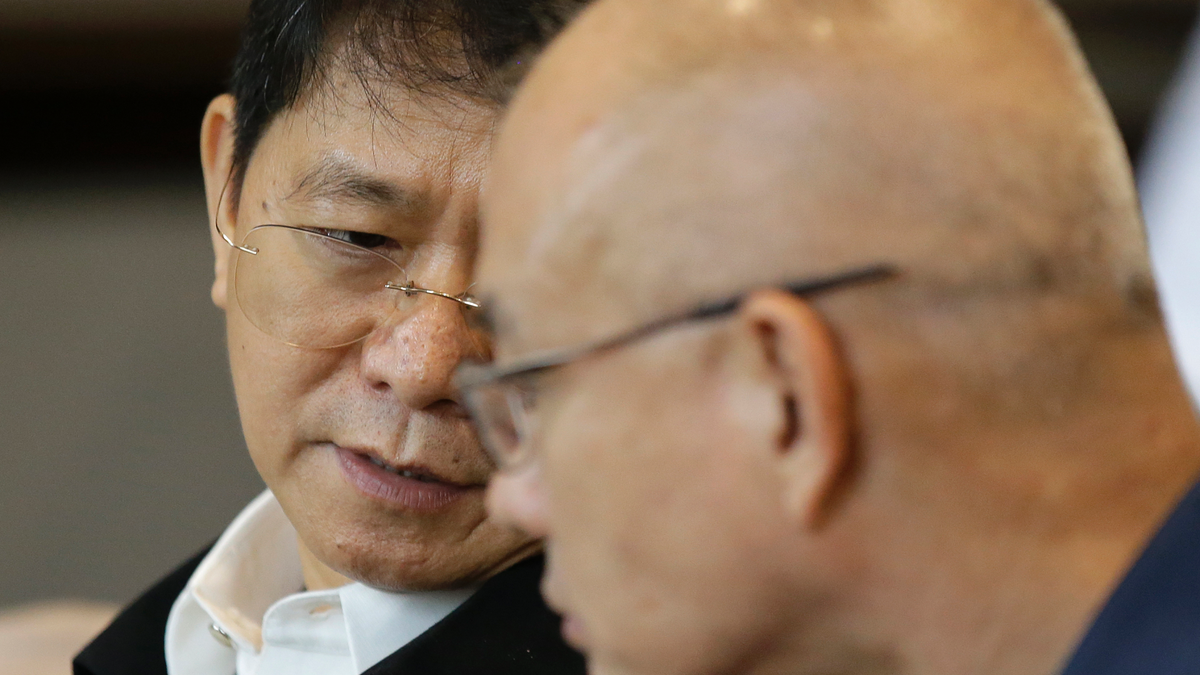
MANILA, Philippines – A foreign militant was behind a powerful van blast that targeted a big public gathering in the southern Philippines but failed after the vehicle stalled and instead killed the suspect and 10 others, an official said Thursday.
Interior Undersecretary Eduardo Ano said there is no conclusive evidence the Islamic State group plotted the suicide bombing. The extremist group, however, could benefit by claiming responsibility to project strength and gain new recruits, he said.
The Islamic State group has claimed credit for the attack, saying the attacker was a Moroccan. However, it erroneously cited a much higher military death toll in the July 31 blast.
All information and forensic data showed the suspected bomber was a foreigner, said Ano, a former military chief who now oversees the national police, which is investigating the explosion in the outskirts of Lamitan city in Basilan province.
"He was targeting an event that gathered about 3,000 people but something went wrong with his van," Ano told The Associated Press, referring to a scheduled program by schools to promote nutrition in Lamitan, which was near the scene of the bombing outside an army militia outpost.
The suspected militant asked villagers to push his white van after it stalled but they became suspicious after seeing unusual wires protruding from plastic gallon tanks in the vehicle, which blew up and killed him, a soldier, five militiamen and four civilians, Ano said.
Government forces had been alerted in Basilan prior to the bombing because of intelligence reports that militants, including Indonesians, would try to carry out bombings, Ano said.
The blast wounded eight other people, including army scout rangers, who were approaching to investigate the van and the driver. The explosion tore a crater on the road and damaged the militia outpost in Lamitan in one of the worst militant attacks in the country this year.
Officials have praised the military and militia personnel who perished or were wounded in the blast as heroes, saying the attack could have inflicted a much larger toll. Regional military commander Lt. Gen. Arnel Dela Vega said the security personnel who died "may not have seen the end of war but their gallantry will remain in our hearts forever."
The bombing renewed terrorism fears but metropolitan Manila police Chief Superintendent Guillermo Lorenzo Eleazar said it would be difficult for the militants to carry out such attacks in the capital and other urban centers due to the heavy presence of law enforcers.
The Philippine government condemned the attack, calling it a "war crime."
The country's south remains under martial law, which President Rodrigo Duterte declared last year to deal with a five-month siege by Islamic State group-linked militants of southern Marawi city. The disastrous siege left more than 1,200 people dead, mostly militants, displaced hundreds of thousands of villagers and sparked fears that the Islamic State group was gaining a foothold in Southeast Asia amid battle defeats in Syria and Iraq.








































